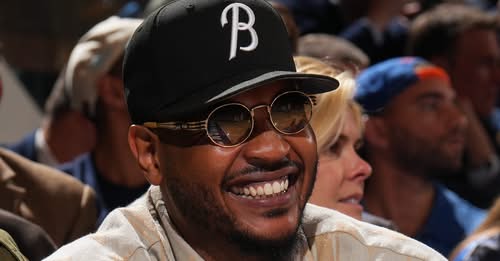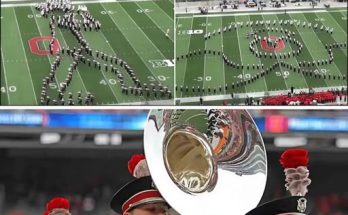Carmelo Anthony, one of the most prolific scorers in NBA history and a 10-time All-Star, recently shared his candid thoughts on Duke University’s basketball phenom Cooper Flagg. While Anthony acknowledges Flagg’s impressive skill set and his overall game, he expressed some reservations about the young star’s ceiling and specific attributes that might limit his ascent to superstardom at the professional level. Anthony’s comments have sparked widespread discussion across college basketball and NBA circles, as Cooper Flagg is one of the most hyped prospects in recent memory.
Flagg, a versatile forward with a rare blend of size, athleticism, and skill, entered Duke with enormous expectations. His ability to score, rebound, and facilitate has drawn comparisons to some of the game’s greats. As a freshman, Flagg has already shown flashes of brilliance that have captivated fans and analysts alike. Yet, despite the buzz, Anthony believes there are critical areas where Flagg is still developing, particularly when it comes to having a signature “go-to” move or play that can reliably dominate at the highest level.
Anthony’s take is nuanced and reflects the mindset of a player who carved out a Hall of Fame career through relentless scoring and evolving his offensive arsenal. He understands the qualities that separate good players from the greats, and his critique of Flagg’s game stems from this experienced perspective. When Anthony says Flagg “doesn’t do anything great,” he’s not dismissing the young star’s overall ability; rather, he’s pointing out that Flagg’s game lacks a defining, standout skill that can be counted on in clutch moments. This insight is vital because it highlights the difference between a talented all-around player and an elite one who can shift the momentum of a game with a single move or shot.
Carmelo Anthony’s career offers a useful lens through which to evaluate Flagg’s potential. Melo was never the fastest or most explosive athlete, but his scoring ability was nearly unmatched because he developed a variety of go-to moves, including his signature fadeaway jumper and an array of post-up skills. His offensive creativity and confidence in isolation situations made him a nightmare for defenders. That kind of dependable offensive weaponry is what Anthony suggests Flagg still needs to develop.
Cooper Flagg’s strengths are clear and plentiful. Standing around 6-foot-7 and possessing the agility to play multiple positions, Flagg has an advanced feel for the game rarely seen in players so young. He shows the ability to rebound aggressively, push the ball in transition, and make plays for his teammates. His defense is also highly touted, thanks to his length and instincts. Duke coach Jon Scheyer has often praised Flagg’s versatility and maturity on the court, highlighting his readiness to contribute immediately.
However, Anthony’s concern centers on Flagg’s lack of a single, signature skill that sets him apart as a true superstar. This is not to say Flagg is not a talented scorer—he certainly is—but his scoring tends to come from a combination of effort plays, cuts, and secondary scoring rather than dominant isolation or off-the-dribble creation. While this team-oriented style fits well in Duke’s system and modern basketball’s emphasis on versatility, NBA scouts and veterans like Anthony often look for players who can reliably take over a game in tight situations, especially in the playoffs.
The conversation about having a “go-to play” or “go-to move” might sound like a small detail to casual fans, but it is a crucial factor in player development and long-term success. The best players in the world have a signature move or a play they execute with near perfection under pressure. Michael Jordan had his mid-range jumper and fadeaway, LeBron James has his power drives and court vision, Kevin Durant is known for his smooth shooting stroke, and Carmelo Anthony had his versatile scoring arsenal. These moves become part of a player’s identity and make them nearly unstoppable in key moments.
Flagg’s style is more balanced and less flashy, which has its own advantages. He can defend multiple positions, contribute across the stat sheet, and is a high-IQ player who fits well in a team-oriented system. But when the game is on the line, the ability to isolate, create space, and score efficiently is what separates stars from role players. Carmelo’s critique suggests Flagg may need to refine his offensive skill set further if he wants to reach the highest echelons of basketball.
That said, Carmelo Anthony is not writing Flagg off. His comments come with genuine admiration for the youngster’s tools and potential. Melo recognizes that Flagg’s raw skills, size, and basketball IQ provide a strong foundation to build on. Anthony’s view appears to be that while Flagg is extremely talented, his current game lacks the singular “killer instinct” or go-to weapon that can carry him into superstardom. The path to NBA stardom, Anthony implies, requires more than versatility; it demands a player who can consistently produce game-changing moments on his own.
For Duke fans and basketball analysts, this conversation about Flagg’s ceiling is timely and thought-provoking. The Duke program is known for producing NBA stars with high ceilings, many of whom have gone on to earn accolades and championships at the professional level. Cooper Flagg’s combination of size, athleticism, and skill already places him in elite company, but Anthony’s critique underscores the importance of continued development, especially in areas like shot creation and clutch scoring.
It is also worth noting that Cooper Flagg is only in the earliest stages of his career. College basketball, and particularly a program like Duke’s, provides an environment designed to nurture and develop players. Flagg’s skill set is still evolving, and many players who initially lacked a clear go-to move have developed one through hard work, coaching, and experience. Anthony himself was a young player once, and his own game matured over time as he adjusted to different levels of competition and refined his skills.
Moreover, the modern NBA values versatility and positionless basketball, and players who can impact the game in multiple ways often carve out long, successful careers. Flagg’s ability to guard multiple positions, rebound, and facilitate offense makes him an attractive prospect for teams seeking a multifaceted player. Anthony’s critique might push Flagg and his coaches to emphasize developing that reliable scoring weapon or signature move that can elevate him from a very good player to an elite one.
Flagg’s response to critiques like Anthony’s will be important to watch. The best athletes and competitors use constructive criticism to fuel their growth. If Flagg can internalize the feedback and dedicate himself to expanding his offensive repertoire, there is no reason he cannot reach the heights expected of a top Duke recruit. It’s a journey that requires dedication, patience, and smart coaching.
In the bigger picture, Carmelo Anthony’s comments remind us of the complexity involved in evaluating young basketball talent. It’s easy to get caught up in hype and raw athleticism, but the path to becoming an NBA star is multifaceted. Skills like mental toughness, basketball IQ, and a reliable offensive arsenal matter just as much as physical gifts. Flagg’s journey will be watched closely by scouts, fans, and analysts eager to see if he can add that special element to his game.



